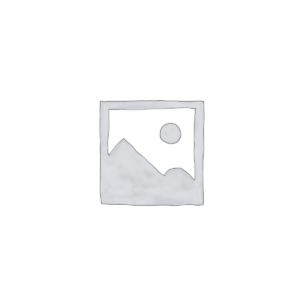Feeling sluggish? Like you’re running on fumes? You’re not alone. Many people struggle with low energy, and supplements often come up as a potential solution. But with so many options available, figuring out the right dietary supplements for you can feel overwhelming. This post tackles those supplement questions you might be too embarrassed to ask.
Let’s face it, supplements can be confusing. Between conflicting advice and marketing hype, it’s hard to know what to believe. Plus, there’s still some social stigma around using dietary supplements.
Table of Contents:
- Decoding the Supplement Landscape
- Supplements and Your Health Journey
- Supplements: Real-Life Examples and Case Studies
- FAQs
- Conclusion
Decoding the Supplement Landscape
What exactly are supplements? The FDA defines them as products that add to your diet. They are distinct from regular food. Dietary supplements come in many forms – pills, powders, gummies – and include vitamins, minerals, herbs, amino acids, and more.
It’s important to note that, by law, supplements cannot claim to “cure” diseases. However, they can still play a significant role in supporting overall wellness.
Benefits and Risks of Supplements
Supplements can help you get essential nutrients. Think calcium supplements for bone health or fiber supplements for digestive health. Some offer established benefits, while others require further research, according to the FDA.
Supplements also have potential risks. Some ingredients can interact with medications or medical tests. Consulting a healthcare professional like a doctor or pharmacist is crucial for personalized advice.
The FDA warns against mixing medications and supplements without professional guidance. Consider the potential for supplement fact sheet interactions. Finding a doctor who understands your individual health data is helpful.
Navigating the Supplement Aisle: Types and Uses
Supplements address diverse needs. Here’s a brief overview of different types of supplements, from multivitamins to those supporting women’s wellness.
- Multivitamins: A balanced mix of essential vitamins and minerals. Helpful if you suspect your diet might have nutritional gaps.
- Individual Vitamins/Minerals: For specific deficiencies like low vitamin D or iron.
- Herbals: Plant-based supplements like echinacea, milk thistle, and evening primrose, traditionally used for various health benefits.
- Probiotics: Introduce beneficial bacteria into your gut, aiding digestion.
- Protein Powders: Popular for muscle growth and recovery.
- Specialty Supplements: Targeted formulas for specific health needs or concerns, like eye health, skin care or immune support.
Supplements and Your Health Journey
Think of supplements as support, not solutions. They work best alongside other healthy habits. Supplements alone won’t solve health problems.
They shouldn’t replace proper medical attention when needed. The National Institutes of Health provides detailed information on different supplement fact sheets. Consult a healthcare professional for personalized guidance.
Integrating Supplements into a Holistic Approach
True health requires a holistic approach, which includes lifestyle factors alongside supplements. Focus on adequate sleep, regular exercise, stress management, nutritious food, and hydration.
Supplements, combined with these habits, can elevate your overall well-being. Explore additional wellness tips for incorporating better eating habits, fitness routines, stress management, and sleep patterns. Supplements have a supporting role in wellness, not a standalone solution.
Finding Credible Information and Safe Products
Not all supplement labels are created equal. It is important to choose wisely to reap the benefits supplements can provide. You get what you pay for. Bargain products may be less potent or contain unwanted additives.
Look for reputable companies with transparent labeling requirements. Check for third-party certifications that validate quality. Seek guidance from your doctor or a registered dietitian.
Supplements: Real-Life Examples and Case Studies
How do supplements work in real life? Here’s one example. My friend Julia struggled with constant fatigue. Simple activities felt like major challenges.
Blood tests revealed vitamin and mineral deficiencies. With physician-prescribed supplements, Julia’s energy levels increased within weeks. She felt a noticeable improvement in her daily life and workouts.
FAQs
Q: What are some common supplement ingredients?
A: Common ingredients include vitamins (like vitamin D and folic acid), minerals (like calcium and iron), herbs (such as milk thistle and horny goat weed), amino acids, probiotics, and fish oil. You can learn more about these ingredients and their health benefits from supplement ingredient databases.
Q: Where can I find reliable information about supplements?
A: Reliable information can be found through the FDA, the National Institutes of Health (NIH), and reputable healthcare providers. Look for resources like supplement fact sheets and consult with professionals like doctors or registered dietitians for personalized advice.
Conclusion
Supplements, used wisely, can support your health goals, but they aren’t a magic bullet. A balanced approach includes positive habits like adequate sleep, a healthy diet, regular physical activity, and stress management techniques. Doing research on specific supplement ingredients can lead to more helpful choices.
Always talk to a health professional for personalized advice. Combining supplements with these other habits can contribute to a healthier, more energetic lifestyle. They can also tell you if particular supplements interact negatively with each other or other medicines you might already be taking. Finding truthful information is only the first step. Combining it with actionable habits helps to truly maximize your health journey.
